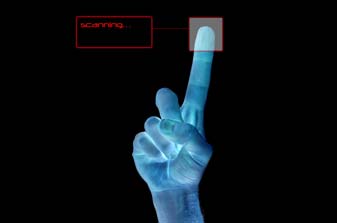Following the news that RBS is to use fingerprint recognition technology in its mobile application. Here to comment on this news is information security expert Geoff Webb, Senior Director, solution strategy at NetIQ. Geoff is an IT security and password expert, while NetIQ provides software for identity and access management, so he is very well-placed to comment here.
Geoff Webb, senior director, solution strategy (NetIQ):
This move by RBS is being driven by the confluence of two very powerful trends. Firstly the widespread move to online banking, with customers expecting to be able to do more on the go from their mobile device, without the inconvenience of having to go to a physical bank or even use a traditional desktop or laptop computer. The second trend is the failure of traditional methods of authentication – proving we are who we claim to be – and the rising cost of fraud and breaches that accompany that failure.
The era of using passwords to prove who we are is drawing to a close. It’s simply too difficult for consumers to create and remember complex passwords, and far too easy for hackers to steal those passwords. As a result there is a rapid shift to biometric-based methods of authentication. The most obvious (and accessible with modern smartphones) is the fingerprint. It’s a good solution – fast, reliable and actually pretty secure. As the need to quickly and securely prove who we are grows in line with the migration of our lives from offline to online, we should expect to see more and more biometric authentication – including fingerprints, iris scanning, retina scanning, and behavioural.
Free Cyber Security Training! Join the revolution today!
About NetIQ
 NetIQ is a global enterprise software company that meets the demands of today’s IT environment with broad, proven solutions for identity and access management, security and data center management. With four regional headquarters the company is there for its customers anytime, anywhere.
NetIQ is a global enterprise software company that meets the demands of today’s IT environment with broad, proven solutions for identity and access management, security and data center management. With four regional headquarters the company is there for its customers anytime, anywhere.
The opinions expressed in this post belongs to the individual contributors and do not necessarily reflect the views of Information Security Buzz.



